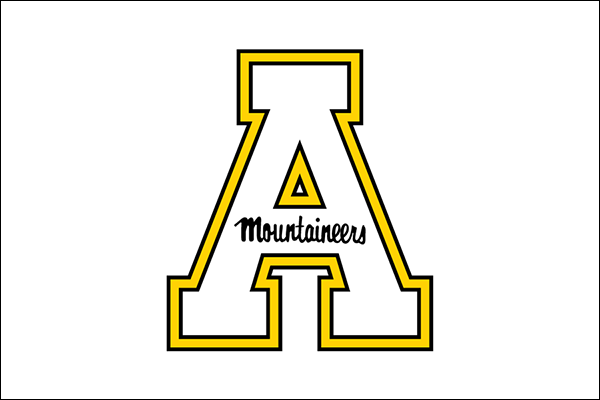BOONE, N.C. — Is a college degree a good investment? At Appalachian State University, the answer is clear: An App State education continues to be a pathway to a better life for North Carolinians, paving the way for higher wages and greater opportunities.
According to recent reports from The Institute for College Access and Success and U.S. News & World Report, Mountaineers graduate with lower student loan debt loads than those of their statewide and national peers. Additionally, a 2023 University of North Carolina System Return on Investment study found that System bachelor’s degree graduates reap over half a million more in lifetime earnings than North Carolinians without degrees.
“A college degree yields many economic and social benefits to our graduates,” said UNC System President Peter Hans in an October 2023 System news release. “But those benefits are far more apparent if students are able to graduate on time and with less debt. Our universities focus on providing a high-quality, affordable education for all North Carolinians and helping students grow from their experience.”
Highly ranked for low student debt
At App State, being a Mountaineer doesn’t have to come with a mountain of debt. In fact, the university has been recognized among Southern higher education institutions where graduates take on lower amounts of student loan debt.
The university ranks as No. 4 among four-year public and private North Carolina higher education institutions for lowest average student debt, according to The Institute for College Access and Success’ (TICAS) 16th annual report on student debt.
Among Class of 2019–20 graduates, TICAS noted the average federal student loan debt per borrower was:
- $29,681 for North Carolina graduates;
- $28,950 for nationwide graduates; and
- $23,105 for App State graduates — or 22% and 20% below the state and national debt averages, respectively.
U.S. News & World Report has recognized App State within the top 15% of public and private Southern colleges and universities where graduates carry the lightest debt loads. As part of its 2024 rankings, the publication ranked App State as No. 18 for least average student debt among 2020 and 2021 graduates.
App State’s affordable costs contribute to lower than average borrowing among its students. At App State, 2023–24 tuition and fees for in-state students total $8,081. The university’s total undergraduate 2023–24 costs of attendance — including tuition and fees, housing, meal plans, transportation, textbooks and supplies — are well below the national averages:
- At App State — $24,024 for in-state residents and $41,720 for out-of-state residents.
- National averages — $28,840 for in-state students and $46,730 for out-of-state students at public institutions, and $60,420 at private institutions (College Board).
Additional accolades highlighting the value of an App State education include rankings among Money.com’s 2023 “Best Colleges in America,” U.S. News’ 2024 “Best Value Universities in the South” and Washington Monthly’s 2023 “Best Bang for the Buck.”
Across the UNC System, student debt levels are on the decline — thanks in large part to a freeze on tuition rates for eight consecutive years.
In 2016–17, 63% of in-state UNC System undergraduates held federal student loan debt at graduation; that number dropped to 55% for those who graduated in 2022.

A Class of 2023 and military-affiliated graduate stands with a smile while being recognized at App State’s Fall 2023 Commencement. According to a 2023 UNC System Return on Investment (ROI) study, the median lifetime earnings of System bachelor’s degree graduates are $1.2 million — about $572,000 more than lifetime earnings of North Carolinians without degrees. Photo by Chase Reynolds
Investing in education pays off: 4-year grads earn $500K more than those without degrees
Earning a degree at App State, one of 16 universities in the UNC System, is not just an affordable investment but one that has high value in the job market.
The UNC System’s 2023 Return on Investment (ROI) Study found that median lifetime earnings of UNC System bachelor’s degree graduates are $1.2 million — surpassing lifetime earnings of North Carolinians without degrees by about $572,000. When subtracting the cost of earning an undergraduate degree, the median overall ROI is $500,000 for UNC System undergraduates who complete degrees — compared to North Carolinians without undergraduate degrees.
For those who earn graduate degrees, the median lifetime earnings are $2.1 million — or about $1 million more than those who have only a bachelor’s degree. Subtracting the cost of earning a graduate degree, the median lifetime ROI is more than $930,000 for those who complete UNC System graduate degrees — compared to North Carolinians without graduate degrees.
Additional highlights from the study:
- 94% of undergraduate degree programs have a positive ROI for graduates.
- 91% of graduate degree programs have a positive ROI for graduates.
- Nearly 90% of low-income students experience upward economic mobility.
- The average student breaks even on their educational investment in under 10 years.
The study, commissioned and funded by the General Assembly and conducted by Deloitte, estimated the return on investment for 724 undergraduate programs and 575 graduate programs across the UNC System.
A positive return on investment in higher education is also backed by the latest data of the U.S. Bureau of Labor Statistics, which reported that, in 2022, bachelor’s degree holders took home a median weekly salary of $1,432, while workers with just a high school diploma earned only $853 — a difference of 68%.
App State ranks as No. 3 in the UNC System for both its current six-year graduation rate (73%) and its current first- to second-year retention rate (85%). App State’s current four-year graduation rate (55%) is No. 4 in the System.
The many ways to pay for higher education
An App State education offers great value, and as App State alumnae Maegan Adolph ’22, Berenice Blanco ’21 and Alyssa Bouchard ’14 shared, numerous funding resources exist to support students’ educational pursuits at App State.
“College doesn’t have to be financially intimidating,” said Adolph.
Sources available to help students finance their education include university scholarships, outside scholarships, grants, loans, work-study programs and tuition assistance.
Approximately two-thirds of App State students receive financial aid to help pay for their time in school, according to the Office of Student Financial Aid and University Scholarships, whose staff are available to assist App State students and families throughout the process of applying for financial aid.
Adolph, who graduated with a bachelor’s degree in exercise science, strongly encourages all prospective college students to start their financial aid journey by filling out the Free Application for Federal Student Aid, or FAFSA, which provides students with access to grants, loans and work-study funds from the federal government.
“It was one of the first things I did,” she said. “It’s so important, and sometimes I would get offers for need-based grants just because they could tell I had financial need.”
Most North Carolinians from households earning $80,000 or less will receive a minimum Next NC Scholarship of $5,000 per year to attend any UNC System institution, provided they fill out and submit a FAFSA by June 1. The Next NC Scholarship combines federal Pell Grants and state-funded financial aid to provide students enough money to cover half, if not all, of their tuition and fees at any UNC System institution. Students with greater need can qualify for even more support.
To pay for her App State education, Adolph secured multiple scholarships and grants, including university’s signature Impact Scholars Program Scholarship — a merit-based scholarship that covers full in-state tuition and fees for up to four years and includes leadership workshops, service-learning, international experiences and mentorship opportunities.
Blanco earned her bachelor’s degree in elementary education from App State, financing nearly all of her educational costs using a combination of institutional and outside scholarships, outside grants and her work-study. As a result, she was able to navigate her post-graduation transition without much financial burden, she said.
Blanco advises Mountaineer students to seek out and take advantage of all available financial aid resources, and to check out App State clubs and organizations for information on such resources.
“Plenty of clubs and organizations host informative meetings or webinars to provide students with (financial aid) tools they may not be aware of,” she said.
Through her work-study, Blanco assisted with university fundraising efforts as a call center employee in App State University Advancement, which provided flexible hours and opportunities for advancement, she said.
For those considering part-time jobs while in school, Blanco encourages Mountaineer students to seek out on-campus jobs, which “are accommodating for students’ schedules and are a great way to network within the university community.”
Blanco was an inaugural scholarship recipient in the university’s Bill and Hughlene Frank Scholars Program, which covers approximately 75% of the cost of tuition for graduates of Guilford County high schools. She also received an academic scholarship from the Reich College of Education.
For continuing students, the Appalachian Scholarship Application Portal (ASAP) is a particularly helpful tool, Blanco shared. ASAP allows continuing Mountaineers to apply for a wide range of university, college and departmental scholarships through a single application. Students are automatically matched to scholarship opportunities for which they are eligible.
Bouchard graduated debt-free from App State, earning her bachelor’s degree in business administration with a focus on risk management and insurance.
“I had no idea how I was going to pay for school," said Bouchard. "I did not have a college fund, so I was completely dependent on financial aid and scholarships.”
Bouchard was a recipient of the Spencer Educational Foundation Scholarship, the Golden LEAF Scholarship and many smaller scholarships from the university and outside organizations.
She also worked throughout college for the App State Brantley Risk and Insurance Center and in University Housing, and completed six different paid internships during summer and winter breaks.
Adolph, Blanco and Bouchard advise students to seek out scholarships and “fill out every single application you can get your hands on.”
“App State and outside organizations are really generous toward students,” said Bouchard. “There are so many scholarships out there, and the small ones really add up. While a lot of students apply for those big scholarships and full rides, the smaller scholarships are often overlooked. So the odds are really good that you will get something.”
What do you think?
Share your feedback on this story.
About Appalachian State University
As a premier public institution, Appalachian State University prepares students to lead purposeful lives. App State is one of 17 campuses in the University of North Carolina System, with a national reputation for innovative teaching and opening access to a high-quality, cost-effective education. The university enrolls more than 21,000 students, has a low student-to-faculty ratio and offers more than 150 undergraduate and 80 graduate majors at its Boone and Hickory campuses and through App State Online. Learn more at https://www.appstate.edu.

















